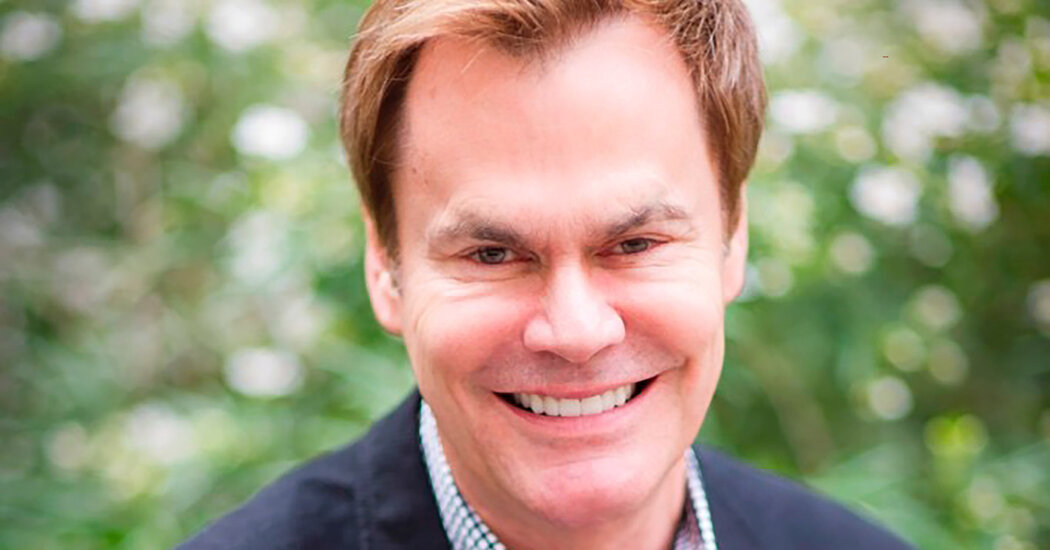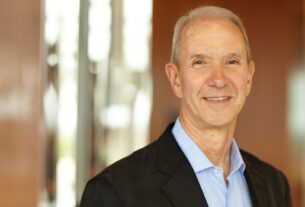Bruce Bastian, a founder of the WordPerfect Corporation, whose word processor was the favored tool for writing during the early days of personal computing — and who later, after coming out as gay, renounced his Mormon faith and funded L.G.B.T.Q. causes — died on June 16 at his home in Palm Springs, Calif. He was 76.
Michael Marriott, the executive director of the B.W. Bastian Foundation, said the cause was complications of pulmonary fibrosis.
Mr. Bastian was finishing graduate school at Brigham Young University in the late 1970s when he founded the company that became WordPerfect with Alan C. Ashton, his computer science professor and a grandson of David O. McKay, the influential former president of the Church of Jesus Christ of Latter-day Saints.
In the 1980s and early ’90s, Mr. Bastian and Mr. Ashton were at the forefront of making computers more productive for daily tasks. Years later, they became adversaries in the legal battle over gay marriage.
Highly customizable, with a free customer support line, WordPerfect emerged from a crowded market of upstart word processors as the go-to choice of new personal computer users. (Among its fans was Philip Roth, who used it until he retired in 2012, long after the program was supplanted in popularity by Microsoft Word.)
“WordPerfect had a reputation for being very user-friendly,” Matthew Kirschenbaum, an English professor at the University of Maryland and the author of “Track Changes: A Literary History of Word Processing” (2016), said in an interview. “It was clean and modern. Most of the screen was given over to the document you were writing, as opposed to a lot of menus and the apparatus of the software.”
Mr. Bastian wrote much of the software code. Mr. Ashton ran the business side. By 1991, the company controlled 50 percent of the word processing market and was generating more than $500 million in sales. It employed more than 4,000 people, most of them at the company’s headquarters in Orem, Utah — hundreds of miles from Silicon Valley.
“In a world in which Silicon Valley companies thrive, WordPerfect Corp. is a bit of an oddball,” Personal Computing magazine wrote in a 1988 cover article about the company. “At 4,000 feet above sea level, Utah’s Great Basin isn’t exactly high-tech headquarters. The air in Orem is dry in December, the snow falling on the Wasatch Front east of Salt Lake City is the powdery fluff expert skiers crave.”
The company’s location wasn’t the only oddity.
“There’s another thing that distinguishes this high-tech company from most others,” the magazine noted. “Like two-thirds of Utah’s population, most WordPerfect employees are Mormons.”
That included both its founders — one of whom was harboring a secret that tormented him.
In 1976, Mr. Bastian married his best friend, Melanie Laycock. They eventually had four sons. But all along, he later told interviewers, Mr. Bastian knew he was gay.
Sometime in the late 1980s, while on a business trip in Amsterdam, he kissed another man.
“When I got back to Utah, I was a mess,” Mr. Bastian said in an interview with Outwords, an organization that records oral histories about the L.G.B.T.Q. movement. “It was just so transformational and so difficult. I walk in the door and see my little boys and I just thought: ‘Uh, jeez. What am I going to do?’”
He told his wife a few days later.
“We tried to make it work,” he told Outwords. “I tried to be gay and be a Mormon at the same time. That’s impossible.”
Mr. Bastian came out publicly a few years later and withdrew his name from the records of the Mormon Church. He received anonymous emails from people expressing their disgust about his sexuality. Still, he felt liberated.
“It was such a relief to actually not have to lie anymore,” he told the podcast “Mormon Stories.”
But there was trouble brewing in WordPerfect’s business.
The company’s software dominated the market for computers running on the MS-DOS operating system, but it was slow to roll out a version for the emerging Microsoft Windows platform. Microsoft also bundled Word into its productivity suite of programs, Microsoft Office, which quickly ate into WordPerfect’s market share.
In 1994, Mr. Bastian and Mr. Ashton sold their privately held company to Novell for $1.4 billion. Novell later sold the software to Corel, which is now known as Alludo. WordPerfect still has a loyal following in the legal world.
Mr. Bastian left the company after the announcement of the sale to Novell. Through his foundation, he became a major philanthropist, funding arts and cultural programs throughout Utah. He also supported L.G.B.T.Q. causes and joined the board of directors of the Human Rights Campaign, an L.G.B.T.Q. advocacy group.
In 2008, the Mormon Church urged its members to financially support the passage of Proposition 8, a ballot measure in California outlawing same-sex marriage. Mr. Ashton contributed $1 million.
“I wanted to make sure the future is good for my children and grandchildren,” he told The Salt Lake Tribune. “That’s why I gave.”
Mr. Bastian contributed $1 million to opposition efforts.
The episode, he said, left him feeling betrayed by Mr. Ashton. It was, he told The Tribune, “ really painful for me.”
Bruce Wayne Bastian was born on March 23, 1948, in Twin Falls, Idaho. His father, Arlon, owned a grocery store and a farm and was also a musician. His mother, Una (Davis) Bastian, managed the household.
He majored in music education at Brigham Young University, graduating in 1975. He was the director of the university’s marching band and, with Mr. Ashton, wrote a program that helped choreograph performances. He received his master’s in computer science in 1978.
In 1985, The Orem-Geneva Times took note of the local company’s success.
“It’s hard to believe,” the newspaper wrote, “that a company with such humble beginnings could become one of the major competitors (if not the major) in the microcomputer word processing industry.”
Mr. Bastian and his wife divorced in 1993. She died in 2016.
He married Clint Ford in 2018.
Mr. Ford survives him, as do his sons, Rick, Darren, Jeff and Robert; two sisters, Camille Cox and Marietta Peterson; a brother, Reese Bastian; and 14 grandchildren.
For Mr. Bastian, coming out was both terrifying and hopeful.
“I don’t think straight people can begin to imagine the inner turmoil and fear at this moment in a gay person’s life,” he told The Salt Lake Tribune. “All your dreams, plans, everything falls apart. The whole foundation of your life crumbles. You can stay the course or follow your heart and go to where every human being dreams of going — to happiness ever after.”





